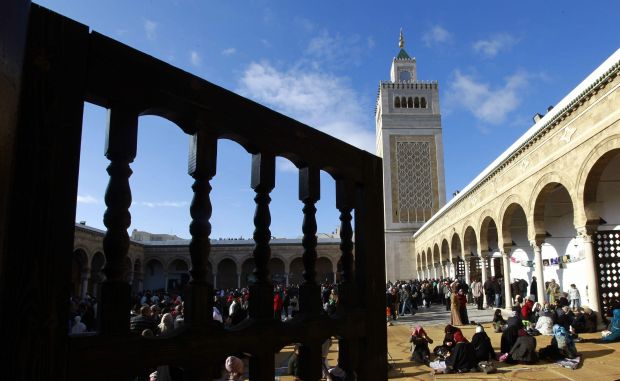It is too early to talk with confidence about the prominent changes that have taken place within the new Tunisian government. However, with regard to the religion policy pursued by this government, there have been a number of noticeable changes that have qualitative dimensions, which also reveal a clear and explicit strategy towards religious affairs.
Observation and analysis of this field in particular is a very important matter, as the religion policy pursued by the previous troika government was an important reason behind its failure, and a key factor behind Tunisia falling victim to terrorism.
In light of this understanding, one can see that the difference between the new government and the former government requires careful examination of the nature of the existing religion policy and the changes it has undergone.
As a result of some new measures and decisions regarding religion policy, one can conclude that Tunisia has embarked on pursuing one that is dominated by strictness and clarity.
These are two qualities that the policy of the former government of Ali Laarayedh lacked. The duality of religious discourse and policy intensified the opposition to the previous government and weakened its ability to defend itself.
This strictness was completely lacking. In its absence all kinds of transgressions took place, such as the symbolic dissolution of mosques and the forced takeover of mosque platforms. The strongest evidence of the absence of such strictness was that people were able to just swan in and out of a mosque in the heart of the Tunisian capital without having any spiritual reason to be there.
By looking at the phenomena of discourse and practice, as well as covert support for militant movements, one can argue that the new Tunisian religion policy has broken with these phenomena, and there is more than one indication of that.
Perhaps the qualitative measures that have been taken over the past few days reinforce the belief that there has been a break with the previous policy. For example, nine mosque imams associated with the hardline religious trend were arrested. There was an announcement that the opening and closing times of mosques would be fixed. Worshippers have been urged to defend mosques as a place of worship and not a place for takfir (denouncing others as non-Muslims), intimidation or the spread of terrorist ideology. Moreover, several official statements were issued stating that the Zitouna Mosque, which is currently out of the control of the central authorities, will be recovered and will be placed under the authority and supervision of the Ministry of Religious Affairs.
In reality, the announcement of these recent moves taken by the government, which have coincided with the arrests of a number of figures accused of promoting extremist religious discourse and instigators of violence affiliated to them, has caused critics of Tunisia’s old religion policy to breathe a sigh of relief. They feel they are experiencing some kind of breakthrough and witnessing the reshaping of the religious field—its spaces, actors, aides, messages, ideas and practices. It is a very recent breakthrough, given that just a few weeks ago the choice of Munir Tlili for Minister of Religious Affairs was an unwelcome one and a source of great controversy, with some considering it a gross and frustrating error on the part of the new government.
Accusations were made against the new minister, because he is seen as an advocate of the need to revise the personal status code so that women’s rights—or, at least, women’s rights according to Tlili—are brought into harmony with Islamic Shari’a law. Moreover, he is also one of the founders of the ‘Shariah’ charity, which some see as an advocate of extremist ideology, in addition to his defense of the endowments law called for by the former government, which was met with widespread controversy.
Whether these accusations are true or exaggerated, the new religious affairs minister was quick to refute them in a recent interview with Tunisian newspaper Al-Chourouk, during which he said that the personal status code is a pillar of the modern Tunisian state and an step forward for the Tunisian people. Furthermore, he clearly stated his staunch opposition to polygamy, adding that his ministry will not allow extremist discourse.
Based on these statements, which are clear in their meaning, position and policy, one can argue that Tunisia has begun to sort out its religious field in accordance with its legacy and civilization and on the basis of positive (not negative) political neutrality and the use of Tunisian religious intellect. In this specific context, we must not forget the aforementioned statement that the new government has started to change the policy. It has taken its first steps on a road that is still long and bumpy, considering the hardline sleeper cells and the number of mosques—approximately 216—that have fallen outside the control of the Ministry of Religious Affairs, as well as the grave mistake committed by the previous government that used the Zitouna Mosque as part of the agenda of the party that dominated, in relative terms, the troika. It put the mosque at risk as part of a religious–educational strategy, thus placing the Zitouna Mosque in the hands of those who are not committed to the history and role of one the oldest beacons of Islam.
